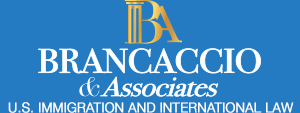In 5-4 ruling, the conservative-leaning high court approved the current administration’s request regulation while the merits of the case continue to be argued in lower courts. [1]
By dramatically expanding the definition of a “public charge”, or an economic burden on society, the U.S. Citizenship and Immigration Services (USCIS) gives officials more power to deny visas and green card applications from immigrants and prospective immigrants whom the government determines rely, or might rely, on certain public benefits like food stamps and government housing programs.
The regulation excludes from the public benefits received by individuals who are serving in active duty or in the Ready Reserve component of the U.S. armed forces, and their spouses and children; public benefits received by certain international adoptees and children acquiring U.S. citizenship; Medicaid for aliens under 21 and pregnant women; Medicaid for school-based services and Medicaid benefits for emergency medical services[2].
This regulation does not apply to humanitarian-based immigration programs for refugees, asylees, Special Immigrant Juveniles, certain trafficking victims, victims of qualifying criminal activity, or victims of domestic violence, among others[3].
The Trump administration has defended the new restrictions as a way to ensure immigrants are self-sufficient. But opponents believe the policy is an attempt by the White House to circumvent laws passed by Congress by establishing a wealth test to limit the immigration of poorer people from developing countries.
Soon after its final version was published last summer, the “public charge” rule was blocked in court, with one federal judge calling it “repugnant to the American dream.” However, in recent weeks, circuit courts lifted three of the four nationwide injunctions against it, leaving only an order by a federal judge in New York standing[4].
Earlier in January, the Justice Department asked the Supreme Court to set aside the remaining nationwide injunction — a request that has now been granted. U.S. immigration officials will now be able to implement the new restrictions in every part of the country other than Illinois, where the rule is still blocked under a statewide injunction.
In a concurring opinion joined by Justice Clarence Thomas, Gorsuch expressed profound concerns about lower court judges issuing nationwide injunctions that “transcend the cases before them.” He said both the government and those suing it are rushing through cases with national implications in the hopes of obtaining emergency rulings, instead of “methodically developing arguments.[5]”
[1] AILA Doc. No. 19101103
[2] https://www.uscis.gov/legal-resources/final-rule-public-charge-ground-inadmissibility
[3] https://www.uscis.gov/legal-resources/final-rule-public-charge-ground-inadmissibility
[4] AILA Doc. No. 19101103
[5]AILA Doc. No. 19101103
